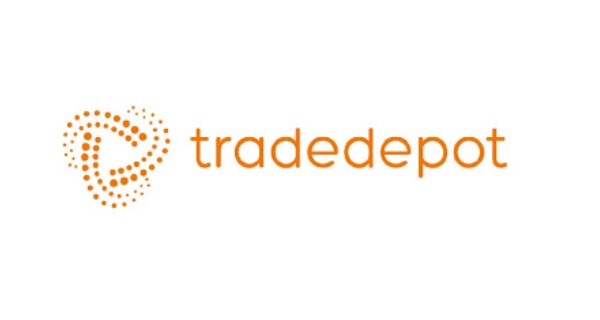News
TradeDepot Highlights Top Trends that will Shape Nigeria’s Retail Sector in 2021

TradeDepot, the B2B eCommerce platform for consumer goods in Africa, has today released new insights from its market data that highlights the trends that will shape Nigeria’s retail sector in 2021.

According to TradeDepot, the impact of the pandemic, rising inflation, border closures and other issues drove significant changes in behaviour for retailers, distributors and manufacturers in 2020.
As the sector settles into the new year, TradeDepot predicts that some of the main trends that shaped 2020 – particularly smaller packaging for consumer goods and increased spending on food and essential goods due to dwindling disposable income and people spending more time at home – will continue to influence behaviour across the market.
The retail sector is the third largest contributor to Nigeria’s Gross Domestic Product (GDP) and more than 90 percent of the sector is made up of informal retailers.
TradeDepot has built a network of more than 50,000 micro retailers, working with global distributors and manufacturers like Nestlé, Unilever, GB Foods and Danone to make household supplies such as milk, soap, detergent and other essentials more accessible and affordable. The top insights from TradeDepot’s data include:
Key trends from 2020
- Across the retail sector, the pandemic led to an increase in store owners exploring alternative channels of reaching, acquiring and servicing customers – especially online and social media. Demand for TradeDepot’s services increased by 500%, with a 300% increase in transaction value and volume on the back of the pandemic.
- Consumer buying patterns shifted slightly towards more food items, with growth in purchase of food and essentials as opposed to other categories. TradeDepot’s data revealed a 10% increase in the overall contribution of food items to the distribution volumes, compared with 2019.
- In the drinks category, the lockdown impacted the ability of manufacturers and distributors to sell into bars, restaurants and clubs, which usually account for up to 60% of their revenue. As a result, many shifted their attention to Mom and Pop, convenience stores etc to cushion the impact
- In the detergent category, price increases driven by inflation led many manufacturers to either introduce or expand production capacity for smaller packs (25g, 90g, 190g, etc) to drive more volume in the consumer segment of the market, which accounts for 65% of the market. The pandemic also saw the introduction of more hygiene-related products to help curtail the spread of the virus
What do these trends mean for the Nigerian retail sector in 2021
- We foresee manufacturers adapting to rising inflation and dwindling disposable income by extending the trend of smaller packs to other product categories
- Manufacturers will explore more alternative route-to-market channels with capabilities to build retail networks and offer logistics-as-a-service to mitigate the risks that come with serving new customer bases
- We expect an increase in the number of challenger value brands and new market entrants offering lower priced products in key categories as consumers get increasingly price conscious and more eager to experiment with new, lower-priced products.
- We also anticipate a rise in products and services designed to help consolidate and improve the industry. There could be more competition higher up in the value chain with more platforms designed to provide auxiliary services like goods packaging and processing etc.
- With the pandemic still ongoing, we envisage that people will continue to take a cautious approach to mingling in crowds and will spend more time at home than in previous years, As a result, spending on food and essential goods is likely to increase
Challenges and opportunities for 2021
- There are challenges with data aggregation because it is a relatively new discipline in this space but so there’s an opportunity for companies with the right capabilities to capture this and utilise it to cater to the audience. Structured access to short term inventory financing at minimal interest rates will also help stimulate growth
- There are also challenges with infrastructure and logistics, which makes it difficult for store owners to meet the demands of the customers and grow their businesses.
- Access to working capital is still the biggest challenge most retailers face in trying to grow their business. There has been some progress with financial services for consumers in recent years and there is potential for many of the learnings to be adapted for retailers
According to Onyekachi Izukanne, CEO and Co-Founder of TradeDepot, “the retail sector is one of the strongest pillars of the Nigerian economy but the absence of data and verifiable insight often makes it difficult to assess the opportunities and challenges that abound in the space.
The sector is also hampered by infrastructure and logistics issues that undermine the efforts of the industrious business owners. With some more support from government, public institutions and private sector players, there is the potential to transform the Nigerian retail market and achieve a quick win for boosting the nation’s GDP”.
News
InfraCredit, AMDA Sign Partnership to Unlock Local Financing for Africa’s Mini-grid Sector

InfraCredit, a specialised infrastructure credit guarantee institution, has entered into a strategic partnership with the Africa Minigrid Developers Association (AMDA) to boost access to long-term local currency financing for mini-grid and distributed renewable energy (DRE) projects across Africa.

The agreement aims to strengthen market development and address long-standing financing barriers in the mini-grid sector, especially in Nigeria and other underserved African markets.
The collaboration is aligned with InfraCredit’s Clean Energy Funding Programme (CEFP), which offers credit enhancement, due diligence support, and technical assistance to renewable energy developers.
“With an estimated 86 million Nigerians, alongside hundreds of millions across Africa—still living without electricity, bridging this energy access gap demands a pipeline of investment-ready, well-prepared projects that can unlock scalable capital and accelerate financial close,” said Chinua Azubike, CEO of InfraCredit.
“This partnership creates a practical pathway to scale the impact of our Clean Energy Funding Programme by equipping more developers to structure commercially viable mini-grid and DRE projects that qualify for long-term local currency finance,” Azubike added.
Through the agreement, both InfraCredit and AMDA will work together to facilitate technical assistance, share toolkits, and deploy credit modelling frameworks, including InfraCredit’s Distributed Renewable Energy Lending Toolkit (DRELT) and DRE Credit Rating Model. These tools aim to enhance the bankability of projects and improve developers’ ability to secure patient capital in local currency.
AMDA, which represents mini-grid developers operating in over 20 African countries, brings deep sector expertise and a strong network of DRE operators to the partnership.
According to Lamide Niyi-Afuye, CEO of AMDA, the collaboration addresses one of the most persistent challenges in the sector.
“We are pleased to collaborate with InfraCredit to address one of the most persistent barriers in the minigrid sector, access to affordable, long-term local currency finance,” said Niyi-Afuye.
“By aligning AMDA’s advocacy and technical support efforts with InfraCredit’s proven models and tools, we aim to accelerate the deployment of resilient, decentralised energy solutions that deliver tangible socioeconomic benefits in Africa. We view this partnership as a blueprint that will be used beyond borders, paving the way for broader regional impact,” he added.
The partnership will also support the development of transaction-ready pipelines, capacity-building initiatives, and investor-developer forums aimed at improving market transparency and accelerating the roll-out of commercially viable mini-grids.
By facilitating access to domestic blended finance and strengthening project preparation, the partnership hopes to unlock greater private sector participation, mobilise local capital, and expand clean energy access across unserved and underserved communities in Africa.
News
Transcorp Power Posts Strong Half-Year Profit, Declares ₦11.25Bn Dividend

Transcorp Power Plc, one of Nigeria’s foremost electricity generating companies and a key subsidiary of Transnational Corporation Plc, has reported a robust financial performance for the half-year ended June 30, 2025.

In a statement issued on Sunday in Delta, the company disclosed a significant revenue growth of 52 per cent year-on-year, rising to ₦205.8 billion from ₦135.4 billion recorded in the corresponding period of 2024.
The company said that its gross profit surged to ₦77.6 billion, with a gross margin of 23 per cent, while profit before tax grew to ₦58.7 billion, representing a 15 per cent increase compared to ₦51 billion in H1 2024.
It attributed the improved performance to increased generation capacity, strategic investment in infrastructure, and enhanced operational efficiency.
Speaking on the development, the Chairman of Transcorp Power, Mr Emmanuel Nnorom, said the half-year results reflect the company’s commitment to disciplined cost management and sustainable value creation.
“Our resilient performance despite economic headwinds reaffirms investor confidence in our long-term prospects,” he said.
The company also declared an interim dividend of ₦11.25 billion, amounting to ₦1.50 for every 50 kobo ordinary share, subject to withholding tax.
Commenting on the operational gains, the Managing Director and Chief Executive Officer, Mr Peter Ikenga, said Transcorp Power increased its generation capacity by 100MW within the period.
“We remain focused on powering Nigeria and Africa, as we build on our momentum into the second half of the year,” Ikenga said.
Transcorp Power is a listed entity on the Nigerian Exchange and operates as one of the country’s leading power generation companies, with a track record of driving economic growth through reliable electricity supply.
News
Lawyers Drags NLS to Court for Alleged Election Fraud, Data Violation

Two Nigerian lawyers have sued promoters of the Nigerian Law Society (NLS) over allegations of electoral fraud and unlawful use of personal data.

The legal actions follow the recent election conducted by the NLS, a breakaway association formed as an alternative to the Nigerian Bar Association (NBA), to elect its national officers.
In one of the suits, marked FHC/ABJ/05/1506/2025 and filed before the Federal High Court in Abuja, a lawyer, Timothy Tersugh Ahua, is challenging the conduct of the election and the legitimacy of the electoral process.
Ahua named several NLS promoters, including prominent lawyers, as defendants.
They include Senior Advocates, Chief Mela Audu Nunghe, Dr. Ugoji Eze, Secretary of the NLS Electoral Committee, and Chief Bolaji, Chairman of the NLS.
Others named in the suit are Ferguson Chioma Blessing, Chief Emeka Ichoku, and Tejumola Adigun.
Citing provisions of the Federal High Court Civil Procedure Rules, Ahua is asking the court to declare that the NLS electoral process violated its constitution.
He is seeking a declaration that all unopposed candidates, including himself, be declared elected, as published by Dr. Tonye Clinton Jaja, the alternate Chairman of the NLS Electoral Committee.
Ahua claims he was duly nominated for the position of Secretary General but was unjustly excluded, accusing the defendants of hand-picking candidates in breach of the rules.
He further alleged that the exclusion caused him financial loss, reputational damage, and personal hardship, urging the court to correct what he described as a grave injustice.
In a separate suit before the Federal High Court in Abeokuta, another lawyer, Oluwadare Thomas, sued Chief Mela Nunghe, a Senior Advocate of Nigeria, Dr. Ugoji Eze, the Corporate Affairs Commission (CAC), the National Information Technology Development Agency (NITDA), and the Nigerian Data Protection Commission (NDPC), over alleged violation of his data privacy rights.
Thomas is asking the court to determine whether the use and publication of his personal data by NLS election officials without his consent amounts to a breach of Section 37 of the 1999 Constitution and the Nigeria Data Protection Act, 2023.
He also wants the court to consider whether the use of the NLS name for the election, despite a CAC notice and a pending suit, constitutes contempt of court and abuse of legal process.
He is seeking several declaratory and injunctive reliefs, including a court order restraining the continued use of his personal data and an order compelling NITDA and NDPC to investigate and sanction the respondents.
Thomas is also demanding N50m in compensation for the alleged unlawful processing and exposure of his personal information.

 E-Business2 days ago
E-Business2 days agoHuawei Unveils AI Computing System to Challenge Nvidia’s Flagship Product

 E-Financial2 days ago
E-Financial2 days agoUnion Bank Rewards Customers with ₦5 Million Each in Save and Win Palli Promo Season 4 Grand Finale

 E-Financial2 days ago
E-Financial2 days agoEdun, Finance Minister Inaugurates NDIC New Management

 News2 days ago
News2 days agoLawyers Drags NLS to Court for Alleged Election Fraud, Data Violation

 General News2 days ago
General News2 days agoNew Tax Law Empowers NRS to Fine Offenders up to N10m

 Broadcasting2 days ago
Broadcasting2 days agoCourt Upholds AVRS Legal Rights to Licence Audiovisual Works in Hotels

 Telecom2 days ago
Telecom2 days agoNASENI, Nigerian Air Force Renew Strategic Partnership to Drive Indigenous Defense Technologies

 General News2 days ago
General News2 days agoTaskforce Arrests Six for over Fake Lottery Scam



























